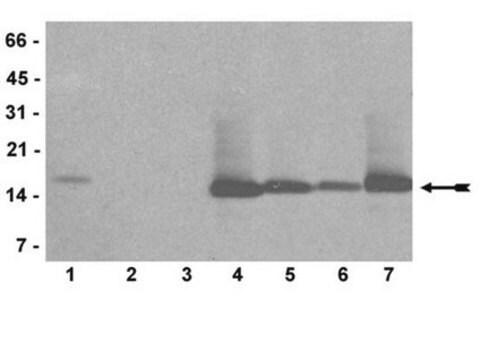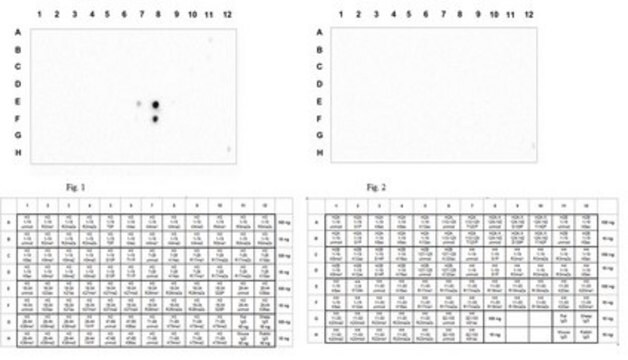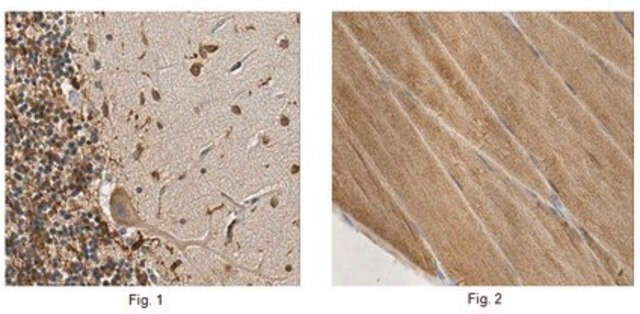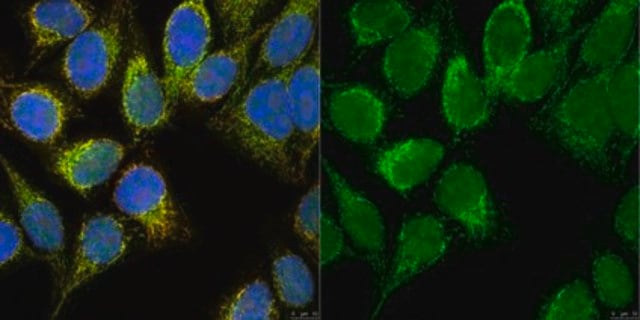05-808
Anti-dimethyl-Histone H3 (Arg2) Antibody, rabbit monoclonal
Upstate®, from rabbit
Sinonimo/i:
H3R2me2, Histone H3 (di methyl R2)
About This Item
Prodotti consigliati
Origine biologica
rabbit
Livello qualitativo
Forma dell’anticorpo
purified antibody
Tipo di anticorpo
primary antibodies
Clone
monoclonal
Reattività contro le specie
human
Produttore/marchio commerciale
Upstate®
tecniche
dot blot: suitable
inhibition assay: suitable (peptide)
multiplexing: suitable
western blot: suitable
Isotipo
IgG
N° accesso NCBI
N° accesso UniProt
Condizioni di spedizione
wet ice
modifica post-traduzionali bersaglio
dimethylation (Arg2)
Informazioni sul gene
human ... H3C1(8350)
Descrizione generale
The N-terminal tail of histone H3 protrudes from the globular nucleosome core and can undergo several different types of epigenetic modifications that influence cellular processes. These modifications include the covalent attachment of methyl or acetyl groups to lysine and arginine amino acids and the phosphorylation of serine or threonine.
Immunogeno
Applicazioni
Qualità
Descrizione del bersaglio
Stato fisico
Risultati analitici
Acid extracts from HeLa cells
Note legali
Not finding the right product?
Try our Motore di ricerca dei prodotti.
Codice della classe di stoccaggio
10 - Combustible liquids
Classe di pericolosità dell'acqua (WGK)
WGK 1
Certificati d'analisi (COA)
Cerca il Certificati d'analisi (COA) digitando il numero di lotto/batch corrispondente. I numeri di lotto o di batch sono stampati sull'etichetta dei prodotti dopo la parola ‘Lotto’ o ‘Batch’.
Possiedi già questo prodotto?
I documenti relativi ai prodotti acquistati recentemente sono disponibili nell’Archivio dei documenti.
Il team dei nostri ricercatori vanta grande esperienza in tutte le aree della ricerca quali Life Science, scienza dei materiali, sintesi chimica, cromatografia, discipline analitiche, ecc..
Contatta l'Assistenza Tecnica.







